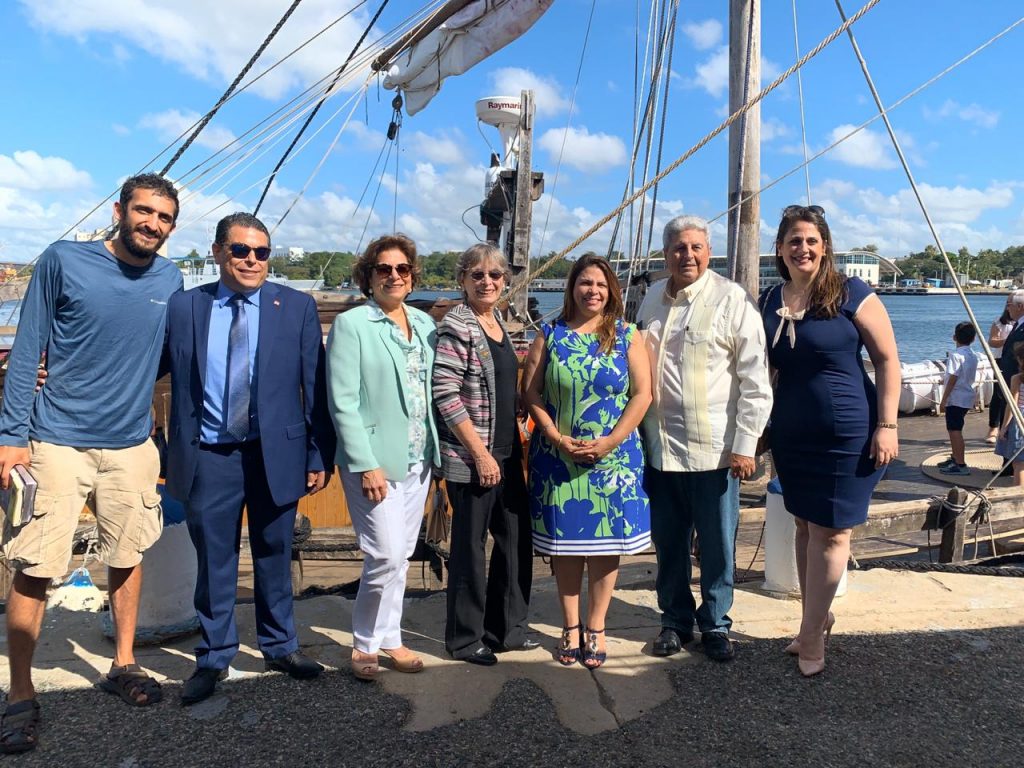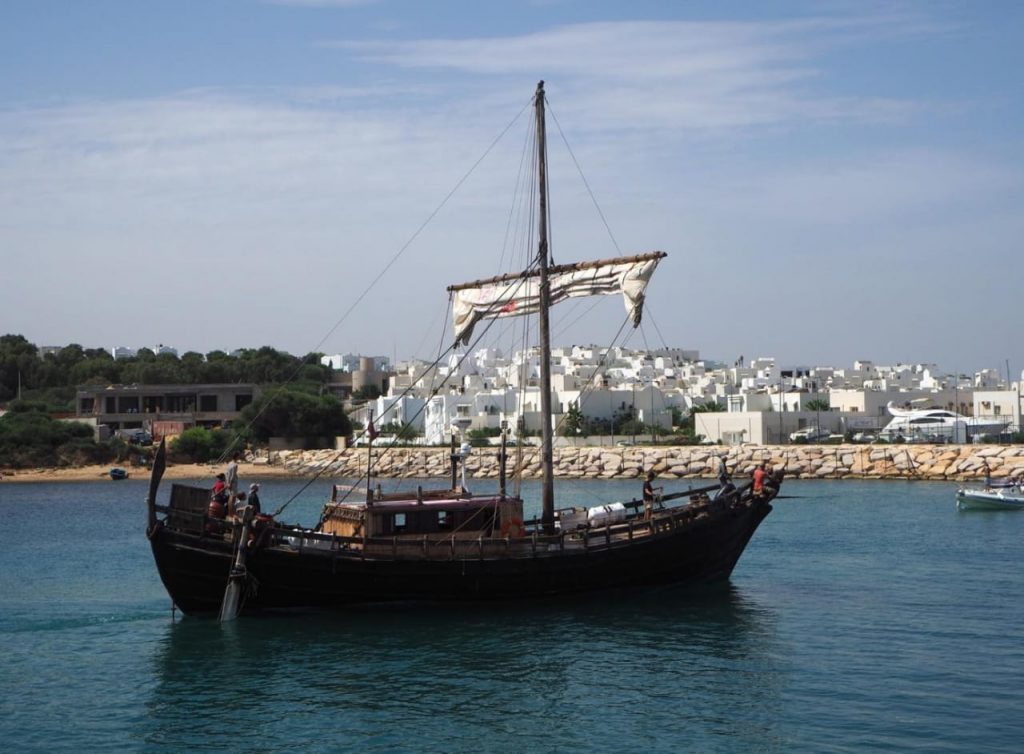
A replica of a 1400AC Phoenician ship is docked at the Navy facilities at Sans Souci port. The ship came on a voyage that could change the way history is written. The Phoenicians Before Columbus Expedition sought to prove that the Phoenicians could have reached the coasts of the Americas around 2,000 years before Christopher Columbus.
The ship arrived to Santo Domingo on Tuesday, 31 December 2019, after four weeks crossing the Atlantic. It successfully recreated the first circumnavigation of Africa, believed to have been accomplished by Phoenician mariners in circa 600BC. The expedition had traveled over 2,400 nautical miles. Given that research found no evidence that the Phoenicians had visited the outer Caribbean islands, the captain continued sailing with the winds and currents towards the Dominican Republic and made landfall on the southern coast in Santo Domingo.
The ship can be appreciated and viewers can see for themselves the sailing and living conditions that make the feat so daring then and today. The crew of 12 traveled endured many of the same hardships to fulfill the historical and cultural adventure. The ship had expected to arrive on 25 December, but the high winds in the Atlantic delayed the arrival of the sail-powered vessel.
The “Phoenician Expedition” is approximately 60 feet long and 18 feet wide. The ship was built in 2008-2010.Historical documents indicate expert navigators and merchants lived in the ancient city of Carthage and would have set out on the route to cross the Atlantic.
The ship sailed from Carthage, Tunisia on 27 September 2019 to the Dominican Republic with stopovers in Gibraltar, Cadiz, Essaouira and Tenerife in the Canaries, Spain.
The Phoenician Expedition captain and 11 crew were received by a delegation from the Lebanese community in the Dominican Republic represented by the board of directors of the Club Libanes-Sirio-Palestino in the country.
Rear Admiral Héctor Juan Martínez Román, representing the commander-general of the Navy, Vice Admiral Emilio Recio Segura, welcomed the daring sailors at the Naval Club facilities.
“It is a special initiative, courage, seafaring aptitude and a sign of perseverance to carry out this maritime trajectory with the sole objective of demonstrating this theory,” said the Navy commander. The vessel will remain in the country for six days. It can be visited at the Navy Club in Sans Souci.
Captain Philip Beale is accompanied by a crew of 11 who sailed using the same techniques and resources as the Phoenician sailors. The crew includes sailors from the United Kingdom, Norway, Brazil, Netherlands, Canada, France and Indonesia.
Captain Philip Beale had won The Captain Scott Society’s Spirit of Adventure Award 2019 for the daring historical and cultural adventure. The Phoenicians Before Columbus Expedition has the approval of the Scientific Exploration Society, a UK-based charity that leads, funds and supports scientific discovery, research and conservation.

Further details about the expedition and a blog on the trip can be found at:
Phoenicians Before Columbus
Captain Scott Society
Z101 Digital
El Nacional
2 January 2020

